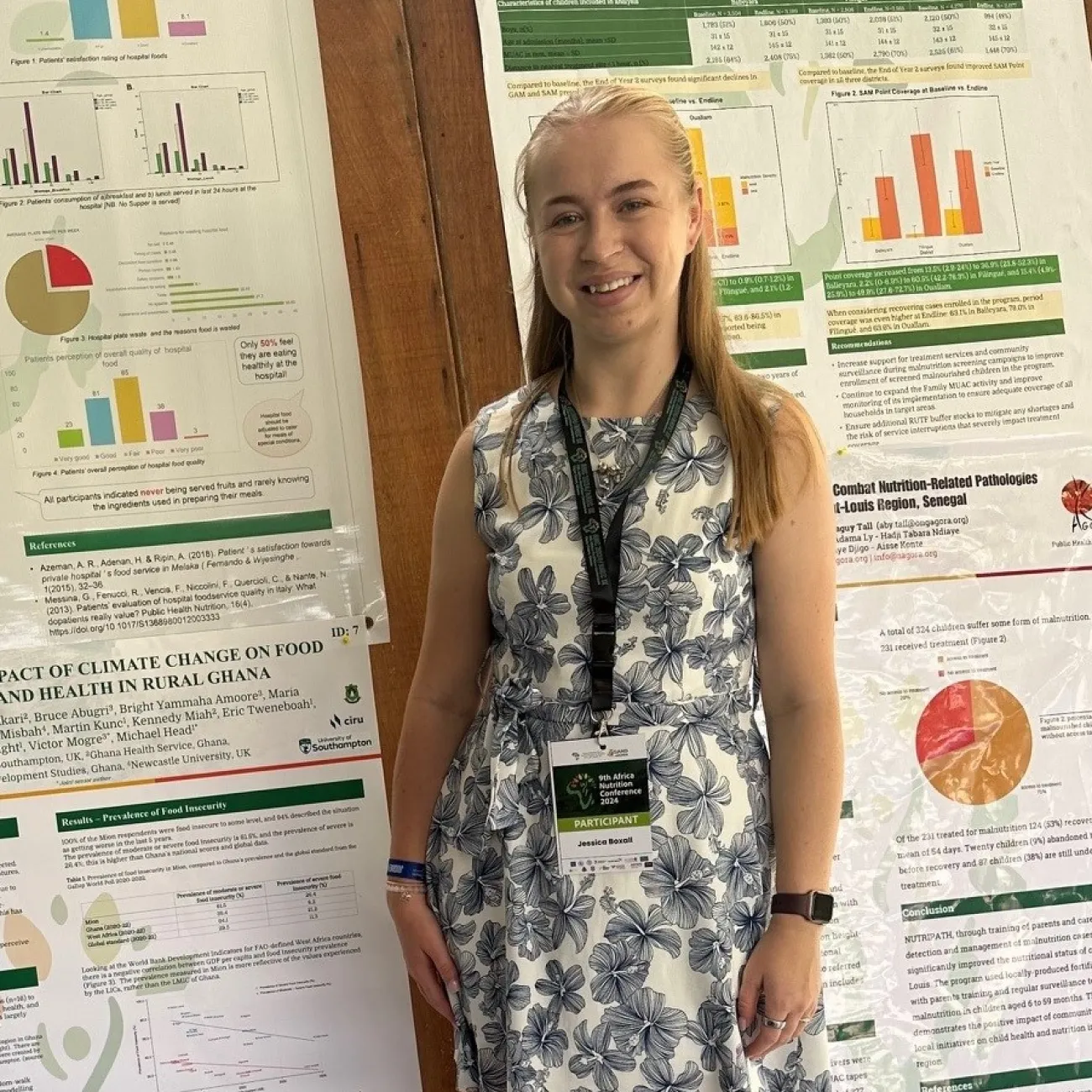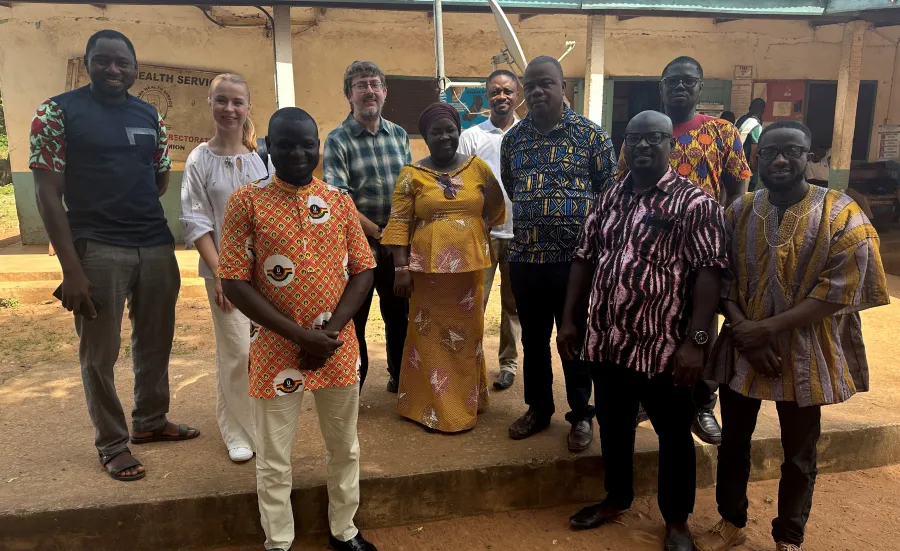Jess joined the University as a Biomedical Sciences student in 2017. Almost a decade later, she would still be at the University, as a research fellow, working to improve women’s health in Ghana, Africa.
She was first drawn to the University because of the flexible nature of the course. Students can choose core modules on the topics they are interested in to allow them to possibly pursue a career in that area.
Jess was also interested in the first-class study facilities and working with knowledgeable course leaders to help her academically and personally thrive. She was also given the opportunity to have a year in employment.
“Southampton was the first university I visited, and I remember stepping on to the red brick area and loving the atmosphere. Nowhere else compared to that afterwards. It was a research-led university at the forefront of some amazing discoveries. The lecturers are so passionate about their field, and they will do anything to support you in what you want to do.”
Jess’s year in employment was based at the University’s Clinical Trials Unit. As a data coordinator, Jess worked alongside the lecturers who had been teaching her, allowing her to see the other side of academia while contributing to national trials. The experience forged connections that remain strong to this day and gave her a window into what a career in research would be like.
“After my year at the trials unit, I was asked to apply for a role in the Clinical Informatics Research Unit (CIRU), which I was fortunate to start before finishing my degree. I wasn’t quite done with university, and my passion for nutrition was growing. I saw that the MSc Public Health and Nutrition course could be done part-time, so I started that. It was intense, but I loved every minute of it. It was a lot to balance, but I knew it was worth it, and the encouragement I received from colleagues made it achievable.”
Post-graduate opportunities and beyond
Jess worked with Dr Michael Head on his research at CIRU exploring the impact of climate change on the health of the rural population in Ghana. He was also her dissertation supervisor.
Southampton has opened so many doors for me. I couldn’t imagine being anywhere else.
Jess, Biomedical Sciences
Once she completed her Master’s, she started her own research, understanding the lived experiences of women in these communities and advocating for their voices to be heard in health policy.
“Women's participation in research has historically been either excluded, faced too many barriers, or not been the focus. There is an injustice in that. There are so many gaps in our established evidence base that inform our patient guidelines and national and international policies – they are based on a wealth of information designed for a typical Caucasian male. And that’s just here in the UK. When you look at other countries, the gaps are even wider.”
Conducting her research in Ghana has allowed Jess to develop an understanding of how to respectfully communicate with locals, consider cultural expectations and language differences - an opportunity she believes she wouldn’t get anywhere else. From her first introduction to campus life to presenting research findings in Ghana, Jess’s journey has created meaningful connections while working with trusted specialists, and a willingness to say “yes” to all opportunities.
“My first years at Southampton have quite literally set up the whole platform for my career. From my degree, I knew I didn’t want to be lab-based, but it opened my eyes to what all sides of research look like, especially beyond the lab. You have access to academics right across the university, who are willing to help you. I went to Ghana and presented my dissertation findings, which was just an amazing opportunity. It's been such a springboard for allowing me to find my passion. Southampton has opened so many doors for me. I couldn’t imagine being anywhere else.”

